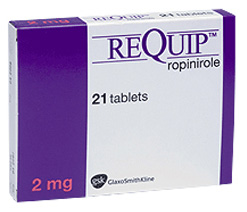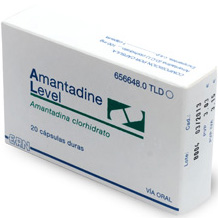Overview
Requip, known by its generic name ropinirole, is a medication that primarily serves to manage the symptoms associated with Parkinson’s disease, and Restless Legs Syndrome (RLS). This dopamine agonist works by mimicking the effects of dopamine, a neurotransmitter associated with movement and coordination.
Indications
Requip is indicated for the treatment of the signs and symptoms of idiopathic Parkinson’s disease. It can be used alone or with other medications. Additionally, it is indicated for the treatment of moderate-to-severe primary Restless Legs Syndrome.
Dosage
The prescribed Requip dosage can vary based on the condition being treated and the patient’s response to therapy. Starting dosages are typically low, gradually increasing until the desired effect is achieved. For Parkinson’s disease, initial doses are often 0.25 mg three times a day, increasing weekly as needed. RLS treatment usually starts at 0.25 mg once daily, taken 1 to 3 hours before bedtime.
Administration
Requip should be taken orally, with or without food. Extended-release tablets should not be chewed, crushed, or divided. Consistency in timing of dosages is crucial for maintaining steady therapeutic effects, particularly for managing RLS symptoms.
Contraindications
Individuals with known hypersensitivity to ropinirole or any of the components of Requip should avoid this medication. Additionally, caution is advised in patients with severe cardiovascular disease, psychotic disorders, or those taking sedating medications.
Precautions
Requip may cause orthostatic hypotension, especially during dose escalation. Care should be taken in patients with cardiovascular disease. Dyskinesia may occur, necessitating dosage adjustments. Impulse control disorders can arise; monitoring for behaviors like compulsive gambling, eating, shopping, or hypersexuality is needed. Hallucinations and psychotic-like behaviors are possible, particularly in patients with existing psychiatric conditions or those taking other dopaminergic medications.
Adverse Effects
Requip may lead to side effects such as dizziness, nausea, somnolence, and the aforementioned orthostatic hypotension. It is also associated with vomiting, fatigue, dyskinesia, confusion, and hallucinations. Less common but severe side effects include impulse control disorders and pathological gambling.
Drug Interactions
Requip has potential interactions with other CNS depressants, which could intensify the sedative effect. Dopamine antagonists like neuroleptics or metoclopramide may diminish the efficacy of Requip. Caution should be exercised when using with CYP1A2 inhibitors that could increase ropinirole plasma levels. Adjusting the dosing of Requip or the interacting medication may be necessary.
Overdose
An overdose of Requip can lead to manifestations such as vomiting, somnolence, or hallucinations. Severe cases may result in acute renal failure, hypertension, or psychosis. Immediate medical attention is critical, and treatment is symptomatic and supportive.
Consequences
Long-term consequences of overdose can be detrimental to overall health and could impede the patient’s capacity for normal daily activities. Rehabilitation from overdose might necessitate prolonged medical supervision.
Storage
Requip should be stored at room temperature, away from moisture, heat, and light. The medication should be kept in its original container, out of reach of children and pets.
Handling
Tablets should be handled with clean, dry hands and be taken promptly after removal from its packaging to maintain integrity and potency.
Clinical Pharmacology
Requip is classified as a non-ergoline dopamine agonist with a high relative in vitro specificity and full intrinsic activity at the D2 and D3 dopamine receptor subtypes, playing a key role in motor function. The drug’s peak effects typically occur 1 to 2 hours after administration.
Counseling
Patients should be briefed about the importance of adherence to prescribed dosages and the potential side effects, including the risk of drowsiness and the sudden onset of sleep. They should be advised against driving or operating heavy machinery if they experience such effects. Discussion should also include the possibility of impulse control disorders.
FAQs
Common questions include inquiries about the ability to drive, alcohol consumption, and pregnancy-related safety. Driving may be restricted if dizziness or somnolence occur. Alcohol can worsen certain side effects and should be avoided. Requip should only be taken during pregnancy if absolutely necessary.
Safety
Alongside effective management of the underlying condition, safety considerations include monitoring for side effects, avoidance in patients with contraindications, and acknowledgment of the potential need for lifestyle adjustments due to possible medication side effects.
Warnings
Requip carries warnings about potential heart rhythm problems and the risk of pathological gambling. Patients with a history of cardiovascular issues and those who have exhibited addictive behaviors should be monitored closely.
Precautions
Further precautions involve being mindful of increased somnolence and the need to possibly adjust the medication in patients with renal insufficiency. Sudden withdrawal of Requip can result in a condition known as neuroleptic malignant syndrome, which is life-threatening, so discontinuation must be approached cautiously and under medical guidance.





Reviews
There are no reviews yet.